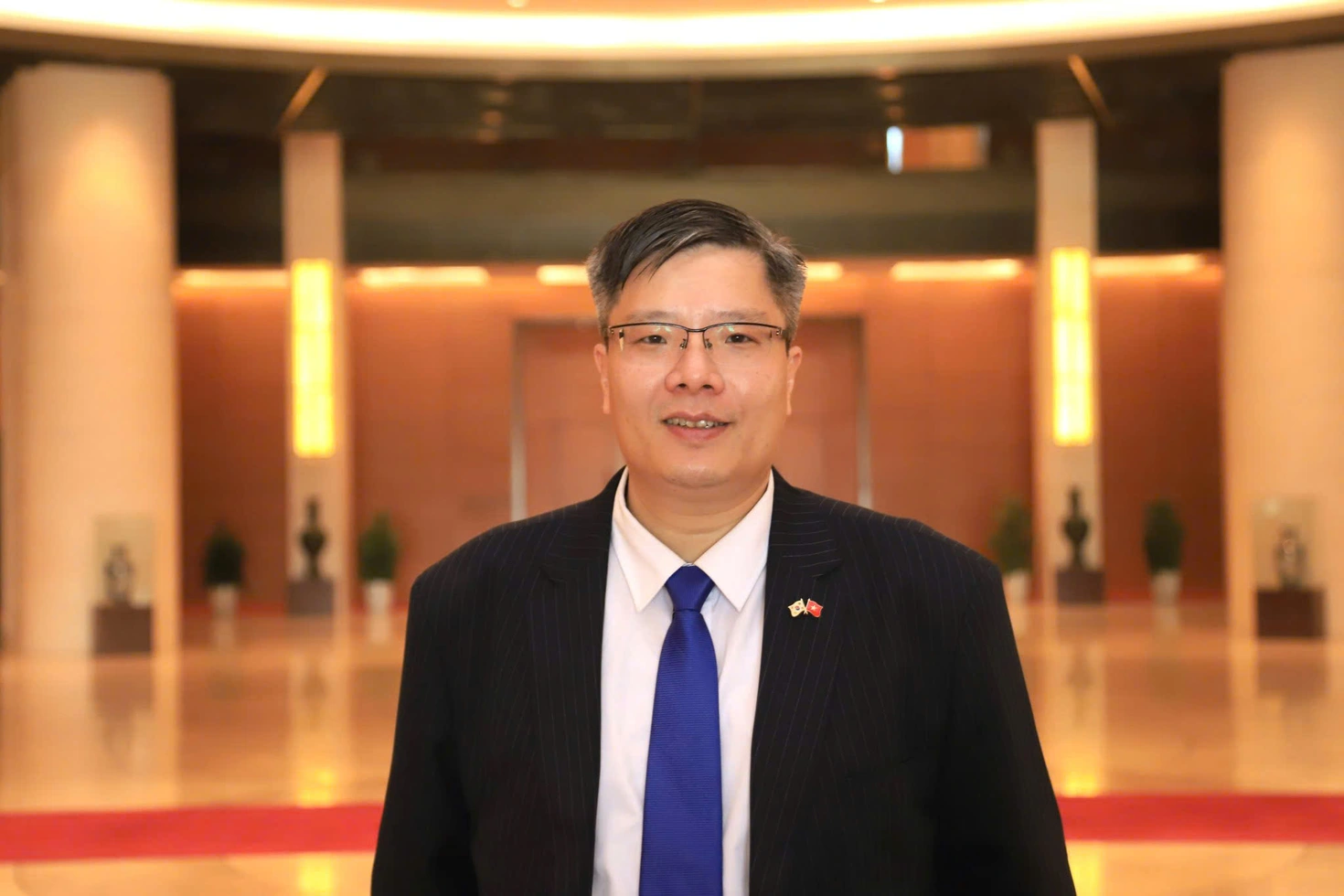
"I believe that the connection between the State - enterprises - academia - overseas Vietnamese is the quadrilateral of sustainable development of Vietnam in the new era," Dr. Tran Hai Linh, member of the Central Committee of the Vietnam Fatherland Front , Chairman of the Vietnam - Korea Businessmen & Investment Association (VKBIA), founding Chairman of the Vietnam - Korea Experts - Intellectuals Association (VKEIA) told Dan Tri newspaper in the context of the entire population contributing to the Documents of the 14th National Congress of the Party.
Mr. Tran Hai Linh said that the preparation process for the 14th National Party Congress documents was carried out very carefully, methodically and comprehensively, clearly demonstrating the Party's strategic vision and scientific and democratic working methods.
The content of the draft Political Report submitted to the 14th National Congress has comprehensively reflected the great achievements after nearly 40 years of renovation, while clearly pointing out the limitations, challenges and causes, which is a valuable point demonstrating the Party's spirit of self-reflection and self-renewal.
He commented that widely consulting with people of all walks of life at home, overseas Vietnamese , and scientists and experts inside and outside the Party shows that the Party truly values collective intelligence and listens to reality to perfect the vision for national development in the new period.
"I appreciate the way the 14th National Congress documents not only summarize the past but also open up a new vision for the future, in which Vietnam is positioned as a country with aspirations for development, proactive integration and active contribution to peace, stability and cooperation in the region and the world," he emphasized.
Affirming Vietnam's position in the global value chain
According to him, what is particularly noteworthy in the 14th Congress documents is the breakthrough development thinking expressed throughout the document, with new and profound concepts.
Regarding the development of knowledge economy, digital transformation and innovation, these are the three key pillars in the national development strategy for the coming period. This is not only an inevitable trend of the times but also the only way for Vietnam to break through, overcome the middle-income trap and affirm its position in the global value chain.
He made four recommendations for Vietnam to achieve this goal.
First , build a real national innovation ecosystem, with enterprises at the center. The State needs to have policies to strongly encourage enterprises to invest in R&D, technological innovation and digital transformation, and at the same time connect enterprises with research institutes, universities and innovation centers at home and abroad.
Second , develop high-quality human resources for the knowledge economy. Vietnam needs to restructure its university and vocational training programs, focusing on areas such as AI, big data, semiconductors, cybersecurity, and automation.
Connect with the network of Vietnamese experts and intellectuals abroad to form training programs, guide and advise students and domestic businesses. In addition, the remuneration policy and flexible mechanism for overseas Vietnamese experts also need to be improved significantly, transparently and measurably.
Third , promote digital transformation in national governance, public services and businesses with specific quantitative targets. To do so, data must become a strategic resource, and the government needs to take the lead in sharing, connecting and opening public data.
Fourth , forming “innovation clusters” in major economic and technological centers such as Hanoi, Ho Chi Minh City, and Da Nang. In particular, Vietnam should strengthen bilateral cooperation with South Korea, Japan, the US, Singapore, and Europe in technology transfer, engineering training, and investment in applied research, because these are countries with proven strengths in innovation policy.
Building position and power for Vietnam in the globalization period
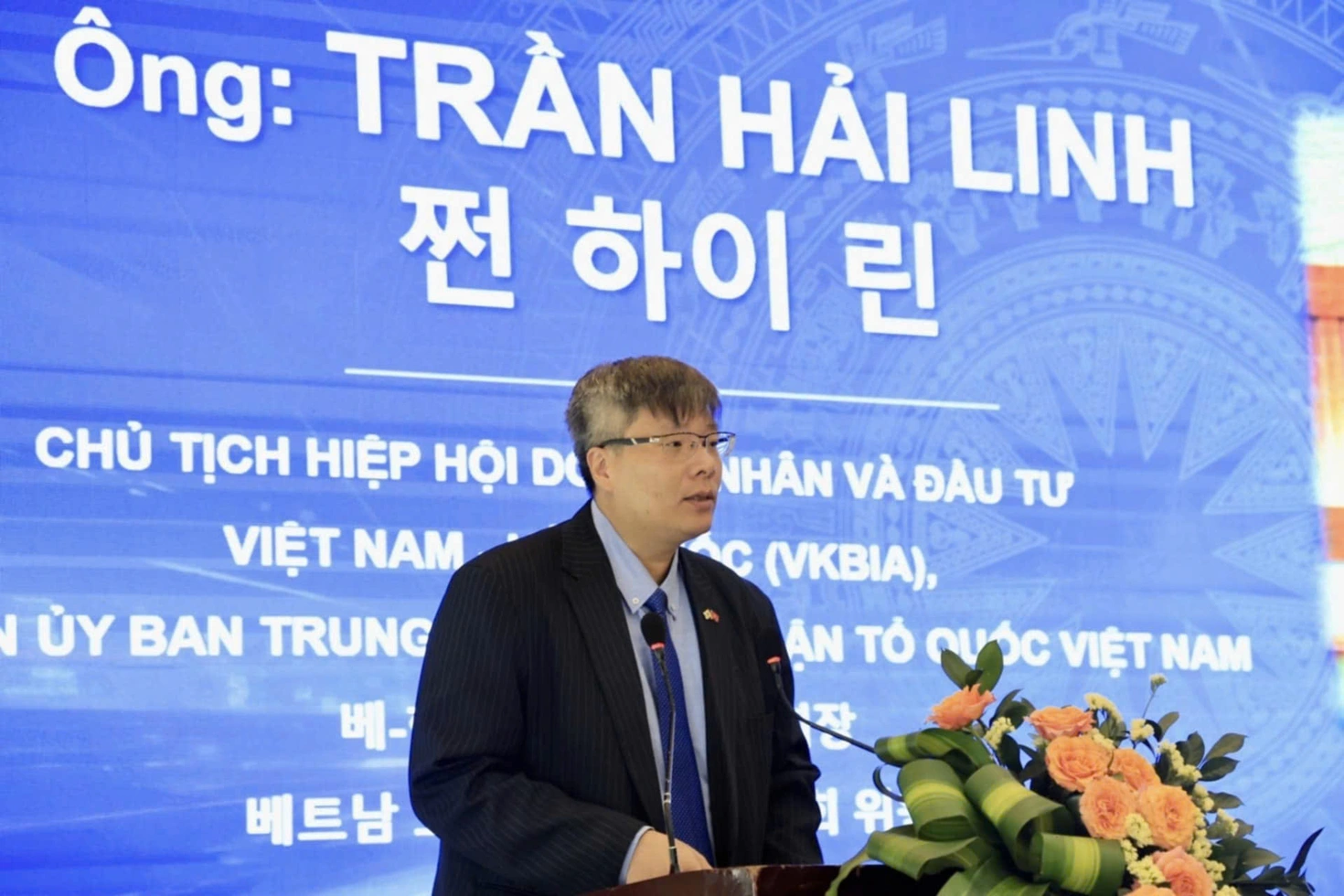
Dr. Tran Hai Linh (Photo: Provided by character).
Dr. Tran Hai Linh highly appreciated the fact that the Draft Document of the 14th National Congress identified “foreign affairs and international integration” as a strategic pillar. According to him, this clearly demonstrates the Party’s strong innovative thinking, placing foreign affairs on par with national defense and security, aiming to build a new position and strength for Vietnam in the period of deep globalization.
According to him, Vietnam needs to integrate in science and technology, innovation and digital transformation because this is the "key" for Vietnam to improve productivity, quality and competitiveness in the global value chain.
Deeply participating in the international innovation network and signing cooperation programs on AI, big data, green technology, semiconductors, etc. will help Vietnam shorten the technology gap and access global knowledge faster.
In addition, he said that Vietnam needs sustainable economic integration, associated with green transformation and inclusive development. Vietnam needs to take advantage of opportunities from new-generation free trade agreements (CPTPP, EVFTA, RCEP...) to shift exports towards green, smart and high added value.
At the same time, proactively participate in international mechanisms on green finance , renewable energy, carbon and sustainable development, thereby affirming Vietnam's role in the global transition towards a net zero emission economy.
In addition, cultural - educational - human integration is also very important. In addition to economic and technological cooperation, Mr. Tran Hai Linh believes that Vietnam needs to invest heavily in cultural diplomacy, education, and knowledge, because these are soft resources that help enhance the influence, image and national values.
He recommended that Vietnam should strengthen cooperation between Vietnamese universities, research institutes, and enterprises with international partners, expand scholar and student exchange programs, and support the global network of Vietnamese experts to operate more effectively.
"I believe that when Vietnam puts people - knowledge - technology - culture as the foundation in the integration process, foreign affairs will not only be the "gateway to the world", but also the "arm that brings Vietnam to the world", contributing to building a developed, self-reliant country with positive influence in the region and the world", he said.
Quadrilateral sustainable development for Vietnam
Dr. Tran Hai Linh commented that the connection between the State - enterprises - academia - overseas Vietnamese is the quadrilateral of sustainable development of Vietnam. When these four pillars operate in harmony, we will form a unified innovation ecosystem, where policy, knowledge, resources and technology converge to create real value for the country.
First of all, the State plays a creative and leading role, through issuing open, transparent and highly predictable policies, encouraging businesses to invest in research and innovation.
Enterprises are the central driving force of innovation. However, to transform from “potential driving force” to “substantive driving force”, Vietnamese enterprises need to invest more heavily in R&D, considering innovation as a survival strategy.
Academia and research institutes play a central role in knowledge, creating a scientific foundation and providing arguments for policy making. Mr. Tran Hai Linh believes that it is necessary to improve the coordination mechanism between policy-making agencies and research institutes, so that scientific voices become a direct input to public policy, instead of just being for reference.
In addition, it is also necessary to promote the three-way cooperation model between universities - enterprises - research institutes that many countries have succeeded in.
Finally, the overseas Vietnamese intellectual and business community is a global strategic resource. Vietnam currently has tens of thousands of experts, engineers, and scientists working at leading research institutes and technology corporations in the world. If there is a flexible and long-term connection mechanism, they can contribute part-time, online, or through cross-border innovation networks.
He recommended that the State Committee for Overseas Vietnamese under the Ministry of Foreign Affairs, Vietnamese embassies and representative agencies abroad should be given additional roles as "innovation hubs", helping to connect domestic enterprises with overseas intellectuals, organize science and technology forums, provide policy advice and promote high-tech investment.
He believes that Vietnam needs to shift from a project-based cooperation model to an ecosystem-based cooperation model, where all parties share goals, benefit together and take responsibility together. This will be a sustainable and smart development model, helping Vietnam move faster on its journey to becoming an innovative, developed and influential country in the region by 2045.
"Blind diplomacy"
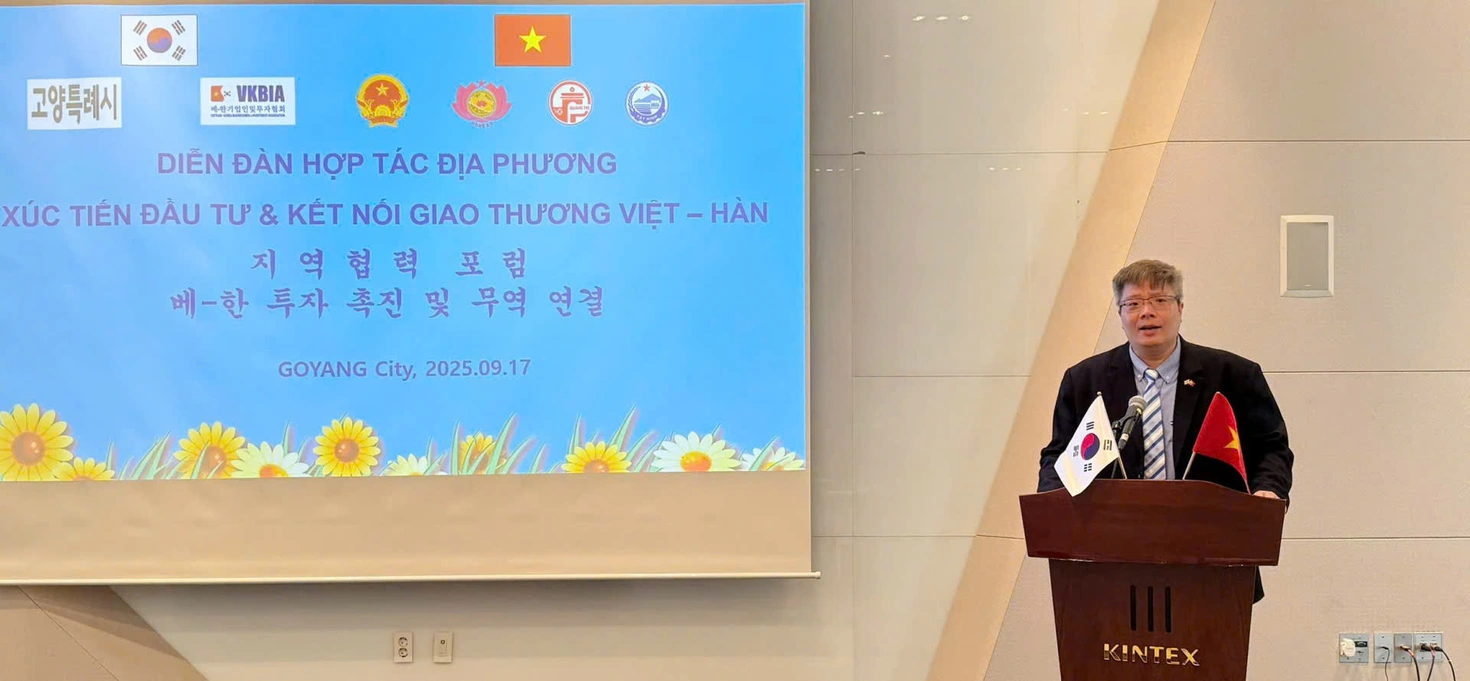
Dr. Tran Hai Linh made recommendations so that Vietnam can attract resources and contributions from overseas Vietnamese to help the country develop (Photo: Provided by the character).
"I believe that if Vietnam has a systematic national strategy on "brain diplomacy", harmoniously combining attraction policies, support mechanisms and a dedicated environment , overseas intellectuals and businessmen will become one of the "strategic levers" to help the country break through in the new era of integration," said Mr. Tran Hai Linh.
According to him, overseas Vietnamese resources, especially the Vietnamese intellectuals, businessmen and experts living and working abroad, are a valuable asset of the country, crystallized from knowledge, international experience, creativity and a heart towards the Fatherland. In order to create conditions for overseas Vietnamese to contribute their opinions, Mr. Tran Hai Linh made 5 recommendations.
Firstly , establish a coordination mechanism between ministries, branches, localities and diplomatic missions to unify the reception, support and exploitation of overseas Vietnamese resources.
Second , it is necessary to build a national database of overseas experts and businessmen - a "global knowledge map of Vietnamese people" - to help the State, businesses and research institutes connect the right people, the right jobs, and the right fields.
Third , cooperation programs should be built according to flexible models, allowing overseas experts to contribute part-time, work remotely, or transfer technology through cooperation projects with domestic businesses and universities.
Fourth , issue reasonable remuneration policies for overseas Vietnamese experts, scientists, and businessmen and create a professional and transparent working environment so that overseas Vietnamese can contribute.
Finally , promote the role of specialized overseas Vietnamese associations, acting as a bridge between the State and the overseas Vietnamese community, transferring information, connecting projects, supporting businesses of the two countries to cooperate in the fields of high technology, energy, digital transformation, green agriculture, etc.
According to Mr. Tran Hai Linh, the great national unity bloc has always been the solid foundation of all victories in Vietnam's history. In the current context of globalization, the Vietnamese community abroad is not only a part of the nation but also a "dual resource", with deep attachment to the homeland and rich knowledge, experience and international network.
According to him, the work of mobilizing overseas Vietnamese needs to shift strongly to “active interaction and practical companionship”. He called for the establishment of specific cooperation mechanisms to help overseas Vietnamese directly participate in the country’s development programs, from technology transfer, production investment, to teaching, research, policy advice or trade and cultural promotion.
In addition, he called for the creation of a synchronous ecosystem connecting the State – the Fatherland Front – domestic enterprises – the overseas Vietnamese community. The Front can play the role of a “soft bridge”, ensuring that the voices of overseas Vietnamese are heard and responded to promptly, thereby forming a trusting, two-way relationship between overseas Vietnamese and domestic agencies.
Besides, Vietnam needs to focus on building a digital information and communication platform for overseas Vietnamese, helping them quickly and accurately access the policies of the Party and State, and at the same time reflect their thoughts and initiatives back to the country.
Finally, he said that the policy for overseas Vietnamese needs to continue to be specified in the direction of expanding the mechanism of recognition, protection, encouragement and honoring overseas Vietnamese who have contributed to the country, so that each overseas Vietnamese can clearly feel: "The country always respects, listens and accompanies them on the journey for a prosperous and powerful future of Vietnam".
Dantri.com.vn
Source: https://dantri.com.vn/the-gioi/ngoai-giao-chat-xam-va-tu-giac-phat-trien-ben-vung-cua-viet-nam-20251105105007758.htm


![[Photo] Prime Minister Pham Minh Chinh attends a conference to review one year of deploying forces to participate in protecting security and order at the grassroots level.](https://vphoto.vietnam.vn/thumb/1200x675/vietnam/resource/IMAGE/2025/11/12/1762957553775_dsc-2379-jpg.webp)




![[Photo] Highways passing through Dong Nai](https://vphoto.vietnam.vn/thumb/1200x675/vietnam/resource/IMAGE/2025/11/12/1762940149627_ndo_br_1-resize-5756-jpg.webp)
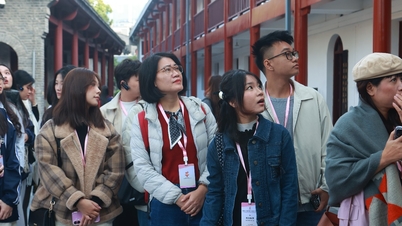




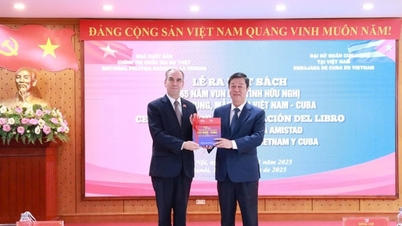

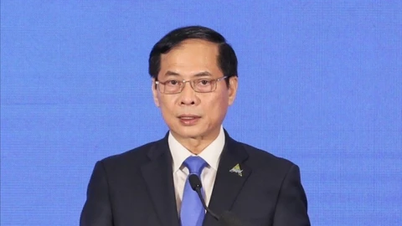

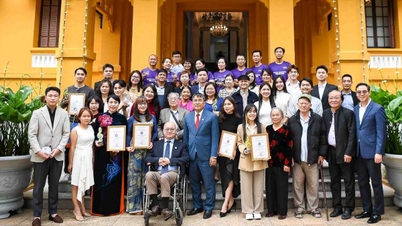

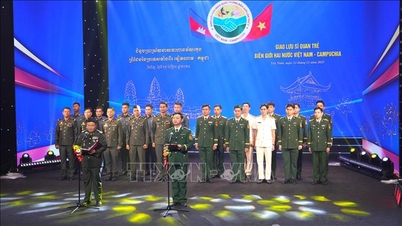
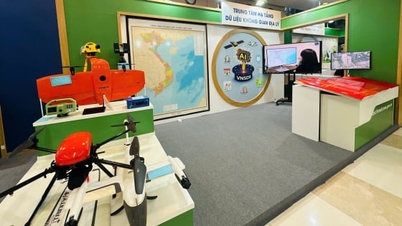













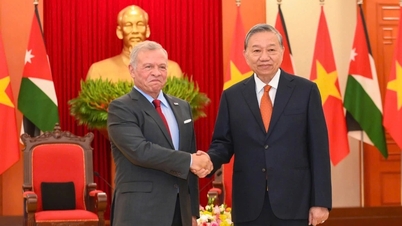

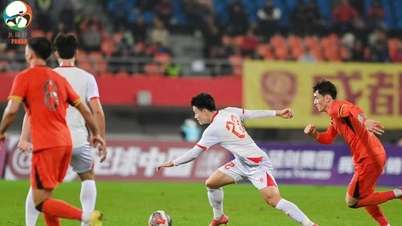
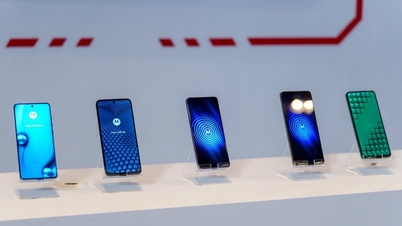












































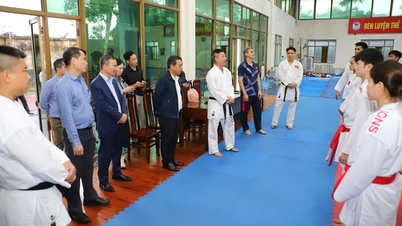

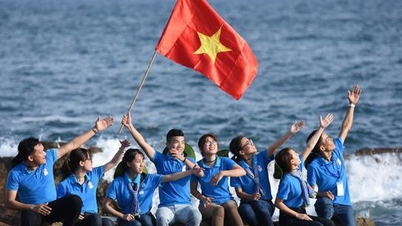


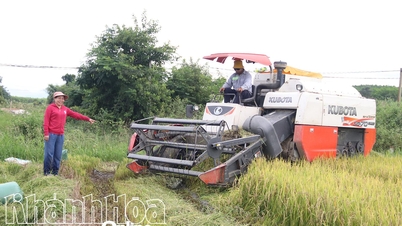



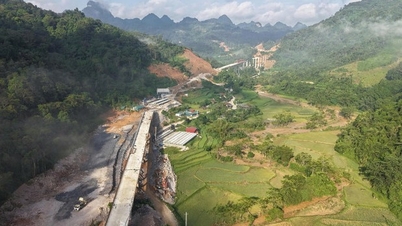
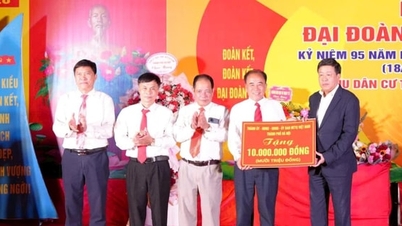
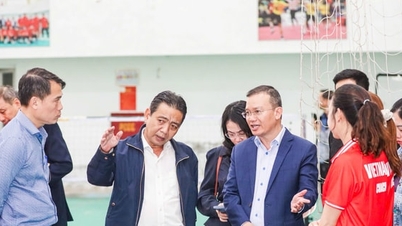





![Dong Nai OCOP transition: [Article 3] Linking tourism with OCOP product consumption](https://vphoto.vietnam.vn/thumb/402x226/vietnam/resource/IMAGE/2025/11/10/1762739199309_1324-2740-7_n-162543_981.jpeg)







Comment (0)